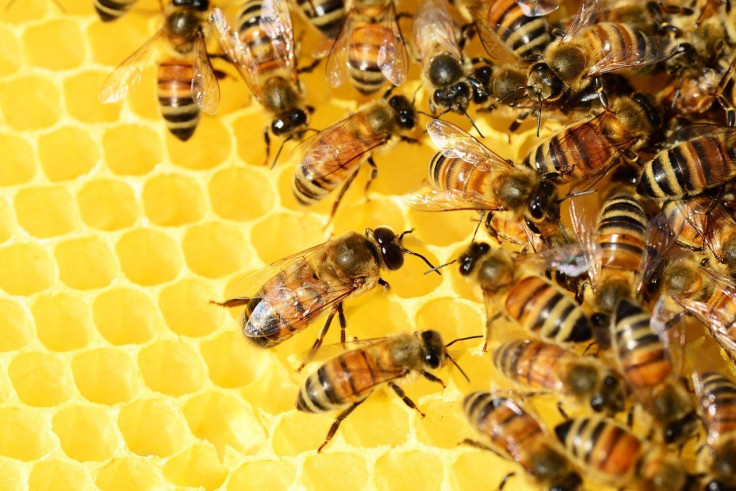Researchers Find 'Hidden' Way Invasive Ants Devastate Honey Bee Colonies
KEY POINTS
- Deformed wing virus is said to be responsible for death of millions of honey bee colonies
- Higher levels of DWV was found in colonies attacked by invasive ants
- "These viral dynamics are a hidden effect of ant pests," researchers say
Invasive ants can devastate honeybee colonies. Apart from attacking them, these ants also lead to increased levels of bee diseases, a new study has found.
As part of their study, published this week in Biology Letters, a team of researchers looked at how the "globally invasive" Linepithema humile (Argentine ant) can affect the "pathogen dynamics" in honeybees.
Invasive species are known for their impacts on native species, they explained. But apart from their direct impact as predators, they can also cause harm by introducing pathogens.
Argentine ants, for instance, raid honeybee hives, kill the bees and take their honey, the Victoria University of Wellington noted in a release. However, they may be also carrying another threat.
"Honey bee-associated viruses are found in various arthropod species including invasive ants," the researchers wrote. The deformed wing virus (DWV), for instance, has resulted in the "global death of millions of honey bee colonies."
The team analyzed over a dozen beehives and found there were higher levels of DWV when Argentine Ants invaded the bee colonies.
"We show that virus titres including those of DWV... increased in honey bees when invasive Argentine ants were present," the researchers wrote.
It's possible the bees were directly infected when they were raided by the ants, or that the stress of the ant attacks affected their susceptibility to the virus.
For instance, since the bees had to increase their foraging to compensate for the resources lost to the ants, the chances to get exposed to pathogens outside the hive also inceased. And the ants act as additional stressors.
"Accumulating stressors and their interactions, in particular between pathogens, has been shown to accelerate bee mortality," the researchers said, adding that the hives that were under attack by the ants were "visibly distressed." "Consequently, the interplay between virus and ant stress may affect bee immunity."
By comparison, native ants don't attack the bees. Only the introduced species were "exhibiting this destructive behavior," said Victoria University Professor Phil Lester, who was one of the study authors.
"These viral dynamics are a hidden effect of ant pests, which could have a significant impact on disease emergence in this economically important pollinator," the researchers wrote. "Our study highlights a perhaps overlooked effect of species invasions: changes in pathogen dynamics."

© Copyright IBTimes 2024. All rights reserved.






















